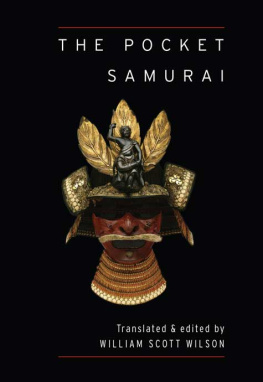David Morrell - The Fifth Profession
Here you can read online David Morrell - The Fifth Profession full text of the book (entire story) in english for free. Download pdf and epub, get meaning, cover and reviews about this ebook. genre: Detective and thriller. Description of the work, (preface) as well as reviews are available. Best literature library LitArk.com created for fans of good reading and offers a wide selection of genres:
Romance novel
Science fiction
Adventure
Detective
Science
History
Home and family
Prose
Art
Politics
Computer
Non-fiction
Religion
Business
Children
Humor
Choose a favorite category and find really read worthwhile books. Enjoy immersion in the world of imagination, feel the emotions of the characters or learn something new for yourself, make an fascinating discovery.

- Book:The Fifth Profession
- Author:
- Genre:
- Rating:4 / 5
- Favourites:Add to favourites
- Your mark:
- 80
- 1
- 2
- 3
- 4
- 5
The Fifth Profession: summary, description and annotation
We offer to read an annotation, description, summary or preface (depends on what the author of the book "The Fifth Profession" wrote himself). If you haven't found the necessary information about the book — write in the comments, we will try to find it.
The Fifth Profession — read online for free the complete book (whole text) full work
Below is the text of the book, divided by pages. System saving the place of the last page read, allows you to conveniently read the book "The Fifth Profession" online for free, without having to search again every time where you left off. Put a bookmark, and you can go to the page where you finished reading at any time.
Font size:
Interval:
Bookmark:

David Morrell
The Fifth Profession
1990
To Sarie: daughter,friend
I don't understand you, said Alice. It's dreadfully confusing.
That's the effect of living backwards, the Queen said kindly. It always makes one a little giddy at first.
Living backwards! Alice repeated in great astonishment. I never heard of such a thing!
But there's one great advantage in it, that one's memory works both ways.
I'm sure mine only works one way, Alice remarked. I can't remember things before they happen.
It's a poor sort of memory that only works backward, the Queen remarked.
LEWISCARROLL
Through the Looking-Glass
The Way of the bodyguard is resolute acceptance of death.
MIYAMOTOMUSASHI
a seventeenth-century samurai
PROLOGUE. PLEDGE OF ALLEGIANCE
No single historical event marks the origin of Savage's profession. The skill to which he devoted himself has its antecedents prior to fact in the haze of myth. At the start, there were hunters, then farmers, then with something to be gained by barter, prostitutes and politicians. Given some debate about precedence, those are the first four human endeavors.
But as soon as something can be gained, it must also be protected. Hence Savage's-the fifth-profession. Although his craft's inception has not been documented, two incidents illustrate its valiant traditions.
THE COMITATUSWhen the Anglo-Saxons invaded Britain four hundred years after Christ, they brought with them a Germanic code of absolute loyalty to a tribal chieftain. In its ultimate interpretation, this code required a chieftain's retainers or comitatus to defend him with their honor unto death. One of the most gripping instances of warriors displaying such total commitment to their lord occurred on the shore of the Blackwater River near the town of Maldon in Essex in 991.
Scandinavian pirates, having raided ports along the eastern coast of Britain, camped on an island that during low tide was linked to the shore by a narrow causeway. The local British chieftain, Birhtnoth, led his faithful comitatus to the causeway and ordered the Vikings not to cross. The enemy defied him.
Swords flashed. Blood soaked the causeway. As the battle intensified, one of Birhtnoth's apprentice soldiers turned cowardly and fled. Others supposed that the retreating figure was Birhtnoth himself and fled as well. Only Birhtnoth and his bodyguards remained.
A javelin struck him. He yanked it out and stabbed his assailant. A Viking ax cut off his sword arm. Helpless, he was slashed to pieces. But although Birhtnoth no longer ruled, his faithful comitatus persisted. To protect his corpse, to avenge his death, they attacked with greater valor. Their deaths were brutal, yet joyous because the comitatus adhered to their code of loyalty.
The original Anglo-Saxon document that describes their heroic defeat concludes in this manner:
Godric often let his spear fly, thrusting his slaughter-shaft toward the Vikings. Bravely he advanced among his brethren, hewed and laid low till he died in the struggle. He was not that Godric who ran from the battle.
Those two Godrics represent the principal conflict in Savage's profession. To protect was the mandate of the comitatus. But at what point, if the cause seemed hopeless, if the chieftain was dead, should a bodyguard protect himself? Whenever Savage debated this moral issue, he remembered Akira and an incident from a quite different culture that illustrated the extreme traditions of the fifth and most noble profession.
THE FORTY-SEVEN RONINIn Japan, the equivalent of the comitatus were the samurai. These protective warriors came into prominence eleven hundred years after Christ when provincial chieftains, known as daimyo, needed fiercely loyal bodyguards to control their domains. Over the centuries, a central military ruler, called a shogun, exerted power over each daimyo. Nonetheless each daimyos samurai felt bonded to their local lord. In 1701, against this complex background of loyalties, an incident occurred that formed the basis for one of the most famous Japanese legends.
Three daimyo were summoned to the shogun's court in Edo (now called Tokyo) with orders to pledge allegiance. However, these daimyo had little knowledge of court manners. Two of the three sought help from an expert in court etiquette. They bribed him with gifts and were rewarded with advice.
But the remaining daimyo, Lord Asano, was too innocent to bribe the etiquette instructor, Lord Kira. Kira felt insulted and ridiculed Asano in the shogun's presence. Humiliated, Asano had no alternative except to defend his honor. He drew his sword and wounded Kira.
To draw a sword in the shogun's presence was a grievous crime. The shogun commanded Asano to atone by disemboweling himself. The daimyo obeyed. Still, his death did not solve the controversy. Now Asano's samurai were bound by the rigorous code of giri, which loosely translated means the burden of obligation, to avenge their master's death by destroying the man who'd begun the chain of insults, Lord Kira.
So compulsory was the code of giri that the shogun assumed there'd be more bloodshed. To end the feud, he sent his warriors to surround Asano's castle and demand the surrender of Asano's samurai. Inside the castle Oishi Yoshio, the captain of Asano's samurai, held council with his men. Some favored resisting the shogun's warriors. Others advocated committing ritual suicide as had their lord. But Oishi sensed that the majority felt their obligation had ended with their master's death. As a test, he offered them the option of dividing Asano's wealth among them. Many unworthy warriors eagerly chose this option. Oishi paid them and urged them to leave. Of more than three hundred samurai, only forty-seven remained. With these, Oishi made a pact, each cutting a finger and joining hands, sealing the pact with their blood.
The forty-seven surrendered to the shogun's warriors and claimed to disavow any obligation they felt to giri and their dead lord. They pretended to accept their lot as ronin, masterless samurai, wanderers. Each traveled his separate way.
But the shogun-suspicious-sent spies to follow them, to insure that the feud had ended. To deceive the spies, each ronin bitterly engaged in unworthy conduct. Some became drunkards, others whoremongers. One sold his wife into prostitution. Another killed his father-in-law. Still another arranged for his sister to become a mistress of the hated Lord Kira. Permitting their swords to rust and themselves to be spat upon, all appeared to wallow in dishonor. At last, after two years, the shogun's spies were convinced that the feud had ended. The shogun removed surveillance from the ronin.
In 1703, the forty-seven ronin regrouped and attacked Kira's castle. With long-repressed rage, they slaughtered their enemy's unsuspecting guards, tracked down and beheaded the man they so loathed, then washed the head and made a pilgrimage to Asano's grave, placing the head on the tomb of their now-avenged master.
The chain of obligation had not yet ended. In obeying the burden of giri, the ronin had violated the shogun's command to stop their vendetta. One code of honor conflicted with another. Only one solution was acceptable. The
Next pageFont size:
Interval:
Bookmark:
Similar books «The Fifth Profession»
Look at similar books to The Fifth Profession. We have selected literature similar in name and meaning in the hope of providing readers with more options to find new, interesting, not yet read works.
Discussion, reviews of the book The Fifth Profession and just readers' own opinions. Leave your comments, write what you think about the work, its meaning or the main characters. Specify what exactly you liked and what you didn't like, and why you think so.






